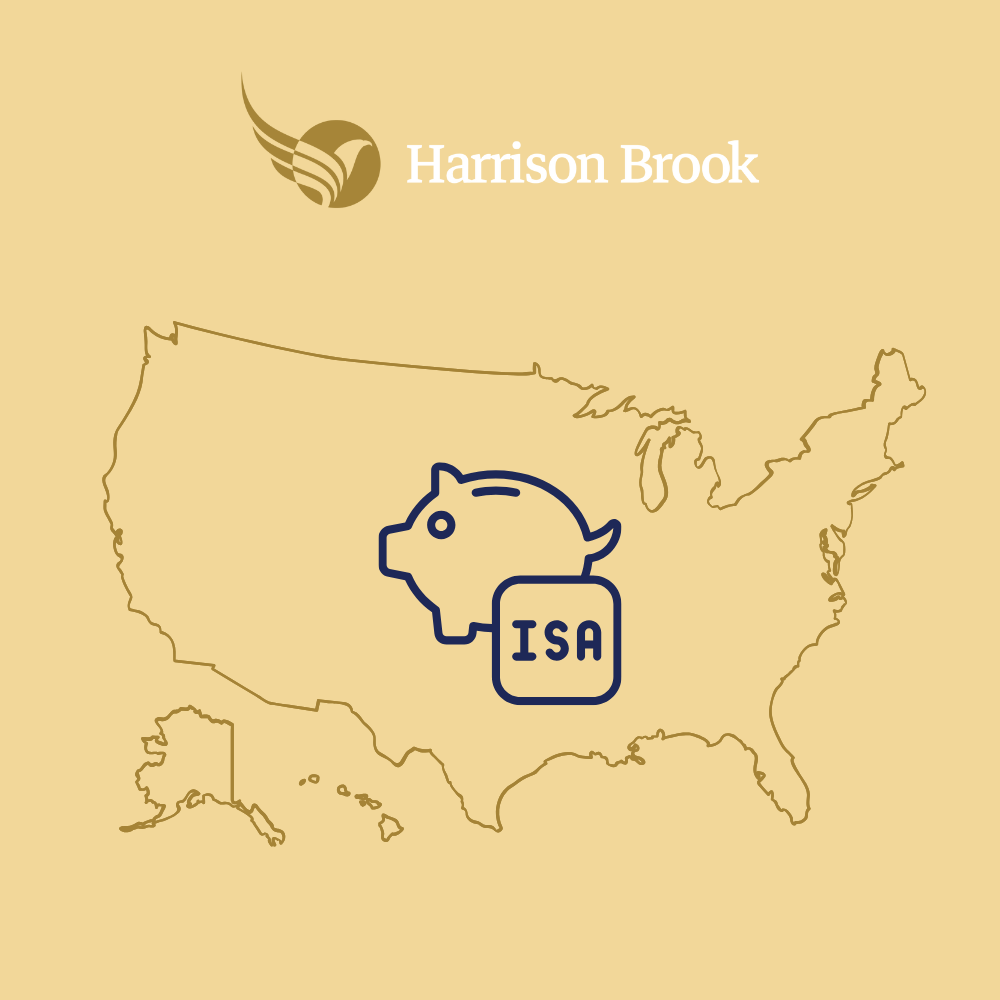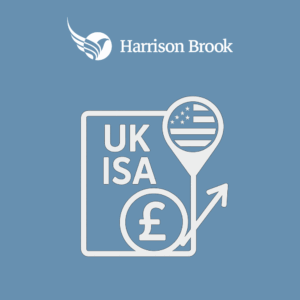
A UK Individual Savings Account (ISA) is a popular tax-advantaged investment account available to UK residents. Designed to encourage saving and investing, an ISA allows individuals to contribute up to a set annual limit, with the benefit of tax-free growth and income from a UK tax perspective. This means that interest, dividends, and capital gains generated within an ISA are not subject to UK tax, making it an attractive option for those seeking tax efficiency and long-term savings.
However, for US citizens, green card holders, and other US taxpayers living in the UK, the tax implications are more complex. Under US tax law, US taxpayers are required to report worldwide income, including any income or gains from a UK ISA, on their US tax return. This requirement can lead to unexpected tax liabilities, as the US does not recognize the tax-free status of ISAs. As a result, income and gains that are tax-free in the UK may be fully taxable in the US, and must be reported annually. Understanding these tax implications is essential for UK residents with US tax obligations, as failing to report worldwide income from an individual savings account can result in penalties and increased scrutiny from the IRS.
Types of UK ISAs
UK ISAs come in several forms, each with its own features and tax implications for US taxpayers. The most common types are Cash ISAs, Stocks and Shares ISAs, and Lifetime ISAs.
- Cash ISAs function much like traditional savings accounts, offering interest income that is tax-free in the UK. However, for US taxpayers, this interest income must be reported on the US tax return and is subject to US tax, eliminating the tax-free benefit.
- Stocks and Shares ISAs allow investments in mutual funds, ETFs, and individual stocks. While these accounts offer the potential for tax-free capital gains and dividends in the UK, US tax rules require all capital gains and dividends to be reported as taxable income. Additionally, many mutual funds and ETFs held in a Stocks and Shares ISA may be classified as passive foreign investment companies (PFICs) by the IRS, which can trigger complex tax reporting and higher tax rates on gains.
- Lifetime ISAs are designed for long-term savings goals, such as purchasing a first home or saving for retirement. While they offer unique UK tax advantages, US taxpayers must still report all income generated within these accounts, and may face additional tax implications depending on the investments held.
For US taxpayers, the type of ISA chosen can significantly impact their US tax liability. It is important to consider how interest income, capital gains, and dividends will be treated under US tax law before selecting a UK ISA as an investment account.
What UK and American Expats Need to Know About ISAs When Living in the United States
The UK Individual Savings Account is one of the most popular and familiar savings vehicles in Britain. For many people who have lived or worked in the UK, an ISA represents simplicity and tax efficiency. However, once you move to the United States, the rules change dramatically. Whether you are a British expat now living in the USA or an American expat returning home after time in the UK, an ISA becomes a very different type of account under US tax law. This article addresses the unique challenges faced by US expats (US citizens living abroad) and UK citizens with cross-border investments.
This article explains how a UK ISA is taxed in the USA, what happens if you leave the UK, and whether it still makes sense to keep your ISA once you become a US resident. The tax treatment of ISAs differs significantly for US citizens and UK taxpayers, while ISAs are tax-advantaged for UK taxpayers, US citizens and US expats face complex reporting requirements and potential US tax liabilities. We also cover alternatives available to both US expats and UK taxpayers with UK investments.
Understanding the ISA When You Become a US Resident
A UK ISA shelters interest, dividends, and growth from UK tax. The ISA structure is recognized only by HMRC. The United States does not recognize the ISA wrapper, so the IRS simply looks at the investments held inside the ISA. As a result, income generated within an ISA is subject to US tax at the applicable US tax rate, which can be higher than the UK tax rate, since the US does not recognize the ISA’s tax-free status.
Compared to other tax sheltered accounts, such as IRAs or 401(k)s in the US, or even UK pensions, ISAs lose their tax-sheltered status for US tax purposes, making them less advantageous for US residents.
This creates similar challenges for two types of expats:
UK expats who move to the USA
You keep your ISA, but you lose the UK tax protection. You cannot contribute further, and everything inside becomes taxable in the United States as foreign income for US tax purposes.
American expats returning to the USA
If you opened an ISA while living in the UK, the IRS does not view it as a tax advantaged account. As a US expat returning to the USA, you may not be able to claim a foreign tax credit for income generated in your ISA, since the UK does not tax this income.
Your ISA becomes a regular taxable account when you resume US tax residency.
In both cases, the IRS taxes all gains, interest, and dividends each year.
How a UK ISA Is Taxed in the USA: The Impact of Passive Foreign Investment Companies
The IRS treats an ISA exactly like any other foreign investment account for US taxation purposes. This means:
- Interest becomes taxable
- Dividends become taxable
- Capital gains become taxable under US capital gains tax rules
- PFIC rules may apply
The PFIC issue is significant for both British and American expats. Most UK based mutual funds and ETFs, as well as most non US mutual funds held in ISAs, qualify as Passive Foreign Investment Companies. PFICs are subject to a very punitive tax regime that can create annual tax charges even without selling anything. They also require highly complex reporting on Form 8621.
This is often the biggest surprise for Americans returning from the UK who were told an ISA was “tax free”.
US Tax Forms and Reporting
US taxpayers who hold UK ISAs face a range of reporting requirements under US tax law. All income and gains from UK ISAs must be reported on the annual US tax return (Form 1040), regardless of whether the income is tax-free in the UK. In addition, US taxpayers may need to disclose their UK ISAs as foreign financial assets on the Foreign Bank and Financial Accounts Report (FBAR) if the aggregate value of their foreign accounts exceeds certain thresholds. The Statement of Specified Foreign Financial Assets (Form 8938) may also be required for higher-value accounts.
If a UK ISA is structured in a way that the IRS considers it a foreign trust, additional reporting on Form 3520 (Annual Return to Report Transactions with Foreign Trusts and Receipt of Certain Foreign Gifts) may be necessary. Failure to comply with these reporting requirements can result in significant penalties and increased IRS scrutiny. Given the complexity of these rules, it is highly recommended that US taxpayers with UK ISAs seek professional tax advice to ensure full compliance and to minimize their US tax liability.
Can an American Have an ISA in the UK
Yes, while living in the UK and meeting UK residency rules. Many Americans open Cash ISAs or Stocks and Shares ISAs during their time in Britain. However, once they leave the UK:
- They cannot make new ISA contributions
- The IRS taxes the ISA fully
- The provider may restrict trading
- PFIC rules may apply to many investments
An ISA remains valid in the UK, but Americans receive no US tax benefits from it.
ISAs, including Cash ISAs, are regulated and promoted by the UK government as tax-free accounts for UK residents.
What Happens to My ISA If I Move to the USA
This applies to both British expats and Americans who opened an ISA in the UK.
If you become a US tax resident:
- You cannot contribute
- Your ISA remains open, but the wrapper is ignored by the IRS
- All income and gains become taxable
- PFIC reporting may be required
- Providers may limit your investment options once you become non resident
Currency exchange rates may affect the value of your ISA and the reporting requirements when converting balances from GBP to USD for US tax purposes.
Many British expats keep their ISA simply because the UK does not require closure. However, keeping an ISA while living in the USA creates unnecessary tax complexity and could lead to surprise tax bills if not monitored correctly.
American expats returning to the USA face the same challenges. The ISA they opened in London, Manchester, or Edinburgh becomes a foreign investment account overnight.
Can I Have an ISA If I Am Not a UK Resident?
No. Only UK residents can make new ISA contributions.
Both British and American expats can keep an existing ISA open, but they cannot fund it once they leave the UK.
Non UK residents cannot open a new ISA.
How to Avoid Double Taxation
The UK USA tax treaty does not recognize ISA tax advantages. The UK tax treaty between the two countries is designed to prevent double taxation on income, but it does not override IRS rules about foreign investment accounts.
The UK does not tax ISA income, so the USA becomes the only taxing authority. Both the US and UK have tax rules that affect expats, but only the US taxes ISA income. Therefore, double taxation is not usually the issue. The bigger problem is PFIC classification and the annual tax impact for both British and American expats.
Should You Keep Your Tax Free ISA When Living in the USA
For most expats, keeping an ISA inside the US tax system is rarely efficient. The most common concerns include:
- PFIC taxes and reporting
- Loss of ISA tax benefits
- Provider restrictions
- Higher administration costs
- Complex annual filings
Some expats choose to hold Cash ISAs only, since cash does not create PFIC issues. Others transfer investments out of the ISA and into structures more suitable for US residents. Investing in US domiciled funds may be more tax efficient for US residents, as these funds can help minimize tax burdens and simplify reporting obligations.
British expats often ask whether keeping the ISA is beneficial if they may return to the UK. The answer depends on investment type and time frame. A future return to the UK may restore UK tax advantages, but the account will still trigger US tax liabilities while you remain a US resident.
American expats who return from the UK almost always benefit from restructuring ISA investments into US compliant portfolios.
Before making any decisions about keeping or restructuring an ISA, it is strongly recommended to seek professional advice to ensure compliance and optimize tax outcomes.
Better Alternatives for British and American Expats in the USA
There are several compliant options available for expats who wish to simplify their UK investments:
- US compliant investment portfolios
- Roth IRA, Roth IRAs, and US Roth IRA accounts as US tax-advantaged retirement options
- International investment accounts without PFIC issues
- International SIPPs for pension consolidation
- UK pension and UK pensions as UK retirement account options
- Managed portfolios designed for cross border clients
When considering retirement accounts, it’s important to note the difference between employer pension schemes and SIPPs. Employer pensions typically involve employer contributions and employee contributions, which can affect tax treatment and reporting requirements. In contrast, SIPPs are usually self-directed and may not include employer contributions unless an employer directly contributes to the SIPP.
Harrison Brook USA offers solutions specifically designed for people who have lived on both sides of the Atlantic and need clear, compliant guidance.
Investing for Children
Many UK residents use ISAs to save for their children’s future, whether for education, a first home, or other long-term goals. However, for US taxpayers, using a UK ISA for this purpose introduces additional tax implications. Any income generated within the ISA, such as interest, dividends, or capital gains, must be reported on the US tax return, even if the account is in the child’s name or is considered tax-free in the UK. Furthermore, if the ISA is classified as a foreign grantor trust, the reporting requirements become even more complex, potentially involving both the parent and the child as US taxpayers.
Before using a UK ISA to invest for children, US taxpayers should carefully consider the potential US tax liability, the impact of passive foreign investment company (PFIC) rules, and the additional reporting requirements. Seeking professional tax advice is essential to ensure compliance with US tax rules and to avoid unexpected tax consequences when saving for your children’s future.
FAQs – US Resident with a UK ISA
Is a UK ISA taxable in the USA
Yes. The IRS taxes all ISA income and gains.
Does HMRC know I have an ISA
Yes. Providers report contributions to HMRC.
Can an American open an ISA in the UK
Yes while living in the UK, but the IRS does not recognize it as tax free.
Can I keep my UK ISA when I move to the USA
Yes, but you cannot contribute and it becomes fully taxable for US purposes.
What is the disadvantage of an ISA for US residents
PFIC taxation, loss of tax benefits, and complex reporting.
What happens to my ISA if I leave the UK
It stays open, but you cannot add contributions and it becomes taxable in the country you move to.
Speak with a Cross Border Adviser
Whether you are a British expat in the USA or an American returning home after time in the UK, you should understand how your ISA fits into the US tax landscape. Harrison Brook USA provides advice that is fully aligned with the needs of cross border families and globally mobile professionals.
Contact Harrison Brook USA today for guidance on managing your UK ISA as a US resident.


